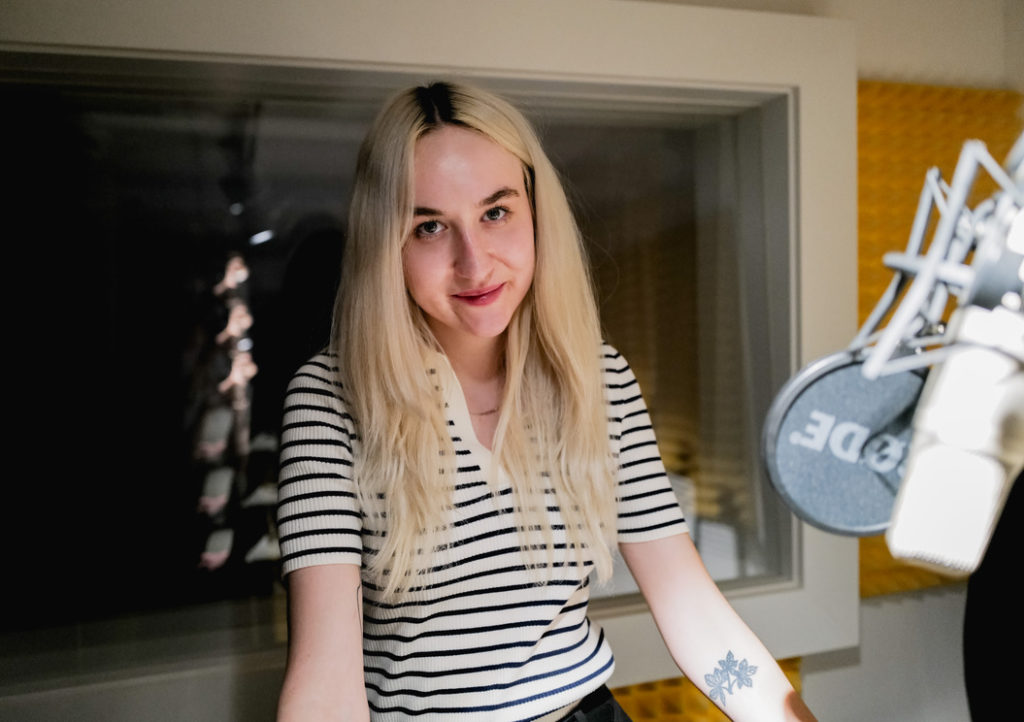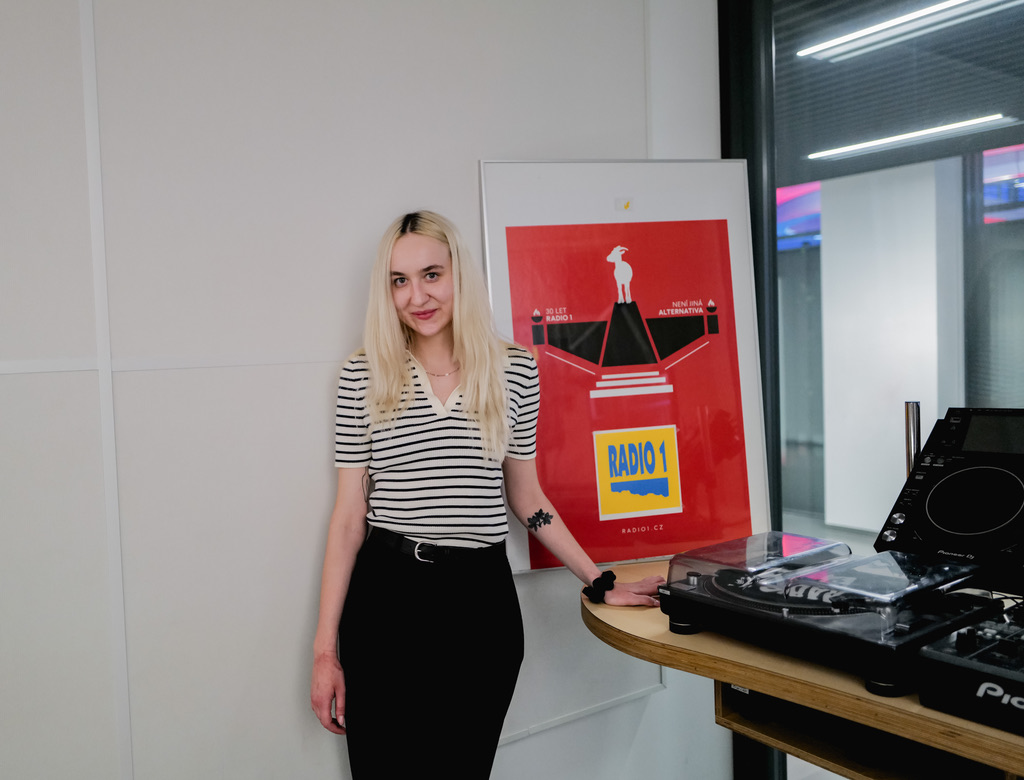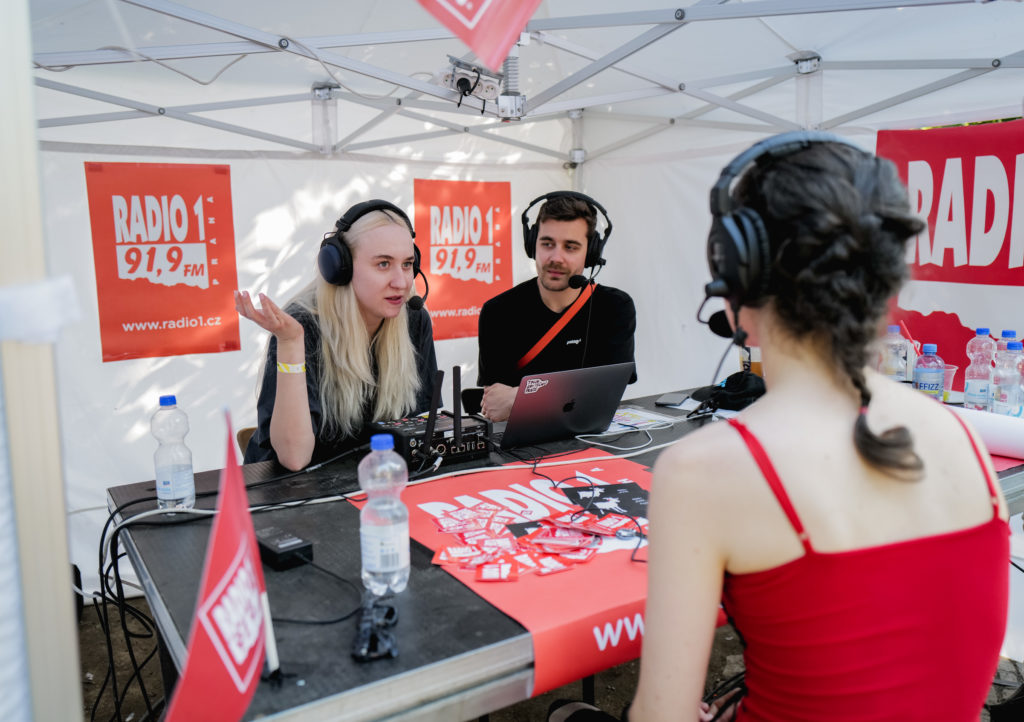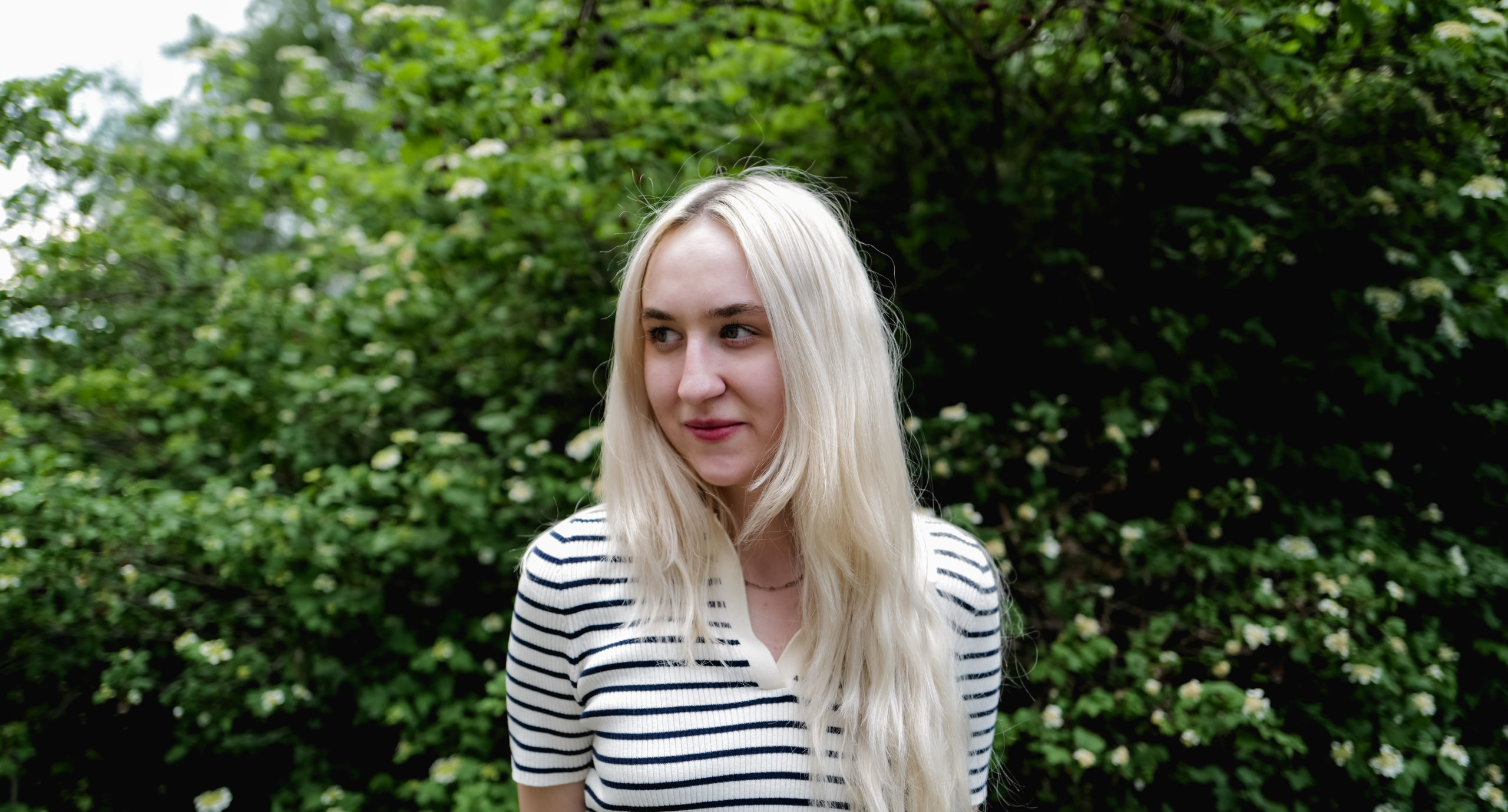You are originally from Kyiv. When exactly did you move to Prague?
I arrived in autumn of 2014 and started studying at the Faculty of Humanities at the Charles University. I’ve always enjoyed literature and writing. I originally wanted to study journalism in Ukraine, but I eventually moved abroad. It was very hard to leave the country I was born and raised in.
Did the annexation of Crimea also play a role in your decision at the time?
It all started with the war in eastern Ukrainian Donbas. The year 2014 was very challenging for everyone. I was about to finish my last year of high school, and my mom told me that I should leave, graduate, and then come back according to the situation. At the time, I felt quite confused and couldn’t decide exactly what I wanted.
Why did you choose Prague?
I studied English in London for a while, but as a student, I would not be able to survive there financially. I really like Prague – it’s the capital of another Slavic nation that is similar to Ukraine in its language and, in fact, mentality. I think that if I were to travel further from home, the change would have been more difficult in all respects.
Can you name any similarities between Ukrainians and Czechs?
I would say that Western Europe is characterized by a degree of individualism. In my opinion, eastern countries are more collective, and people care a little more about others. Both approaches have their advantages and disadvantages. Czechia is somewhere in the middle; you can feel that people here are close to each other and they care about one another.

You were a teenager when you arrived. How did you get used to a whole new lifestyle?
I didn’t expect it to be this difficult. At first, I felt completely lost. I didn’t know anyone in Prague, and I had issues getting to know my way through the city. I lacked the support that my family had provided for me until then. Whatever I do, I don’t just think about myself, I also consider my relatives. When you have a family, you are never alone. But my first few years in the Czech Republic were very lonely. At the same time, it was the beginning of my adult life, which meant new responsibilities and worries about finances or housing. I finally met my first friends in Prague thanks to concerts and the music community.
Apart from personal challenges in Prague, you certainly had to think about the situation at home as well. Is it possible to get something like that out of your head?
I don’t think so. I remember not feeling well in noisy places because they reminded me of explosions. I once had a hysterical fit over New Year’s fireworks – they sounded like bombing Russian planes. Until February 24, 2022, only few would believe that Russia was really capable of doing such a thing. We rationally thought that they could not bomb and kill people, but subconsciously, this fear always lingered inside us.
Have your relatives and acquaintances always had a negative attitude towards Russia, or has everything changed in recent years?
My relationship with the Russians gradually evolved and changed. I was born into an independent state with its own language and culture, so I wasn’t really affected by Russia – I only saw them as a neighbouring state. As a child, I registered Russian music and movies through which I learned Russian language. We discussed history at school, and I gradually learned about imperialist issues from the past.
Did your attitude to Russia change at that moment?
I still viewed Russia as our neighbour with which we share a history. But then I found out that many of my ancestors suffered during the Stalin era. Artists who wrote in Ukrainian or professed love for their homeland were imprisoned. My great-grandfather was a Ukrainian poet and after the World War II, he was sent to Siberia as a political prisoner. And although he survived and returned home, it was no longer him. This completely broke the psyche of my grandmother, whom people were afraid to befriend. My grandfather’s family died in the 1930s because of the famine that plagued Ukraine. According to Russian propaganda, Ukraine is just a piece of Russia that has decided to become an independent country. Unfortunately, some people told me that they feel like I’m a Russophobe. I have my own views, but I would never be aggressive towards any Russian. I feel like as long as Russia articulates its belief that all Ukrainians should die, we also have the right to express our own opinions about them.
Would you say that Ukrainians are generally proud of their nation?
Certainly. Maybe it’s the fact that they had to fight for their independence so many times. They have been striving for freedom since the 15th century, mostly against Russia. This nationwide resistance also created their cultural pride. A similar wave of patriotism is emerging now as well, I consider it a sociological aspect of every war.
Support for Ukrainians in Prague
Julia Yurchuk is almost constantly in contact with her family in Ukraine. At the same time, however, she tries to help Ukrainian refugees in Prague, the city that has become her home in 2014. “I give food, clothes or toiletries to non-profit organizations. The so-called House of Good (Dům Dobra) was established on Florenc, where you can donate all of the necessary things,” Julia explains. She believes that right now, Ukrainian army needs our support the most. “I understand that for ethical reasons, many people don’t want to send money to the military. But it is the weapons of Ukrainian soldiers that are now protecting not only our country, but also the entire Europe,” she states.
Is your family still in Kyiv, or have they left the country by now?
My mother moved to Berlin, but the rest of the family remained in Ukraine. We text each other basically all the time.
Are you trying to help them from a distance?
I feel bad because I don’t know how to help. Fortunately, our family doesn’t have financial problems, so they don’t need support from me in this regard. After the war broke out, my closest relatives moved from Kyiv to a smaller city about 200 kilometres away to live with my grandmother. They had spent two months locked in a small apartment. Especially for older people, it is unimaginably difficult to mentally cope with the current situation. Whenever we have a phone call, I try to stay positive at all costs and emphasize that everything will turn out well. For example, we joke about the fact that my grandmother’s cat scratched the couch, so I should get there and fix it soon.

Have your values in life changed significantly?
Yes, the war changed my priorities. But my family remains in the first place. I used to view material things as important. Now, I realize that we may lose all property in Ukraine overnight. But paradoxically, I’m not afraid of that, the safety of all the people I love is far more important to me. It bothers me that our family library is at risk, including books from the late 19th century that were passed down from generation to generation. On the other hand, these are just things. I’m thinking a lot more about relationships with people now.
Do you think that the Western media cover the war in Ukraine enough?
It depends on what media we’re talking about. I have a feeling, for example, that major television stations are reporting a lot about Ukraine. The American media was one of the first to report on the tendencies of Russians just before the war started. This was one of the first warnings, and I think the attention of the American media delayed the invasion for several days.
Which Czech media do you follow?
I mainly read the Seznam Zprávy and the Respekt weekly. I follow them not only in connection with Ukraine, but I have personally viewed them as the best titles in the country for several years now. Additionally, through Respekt weekly, I got my job at Radio 1. In my bachelor’s thesis, I focused on music journalism, I interviewed a publicist Pavel Turk and wrote an article with Ukrainian cultural tips for Respekt. It was him who recommended me to Zdeněk Lichnovský, the program director of Radio 1, in the beginning of March when the Day with Ukraine took place in the broadcast.
Did you already want to contribute to the media as a student in Ukraine?
When I left the country, I was still very young to write. But journalism has always interested me. So, I used social media to comment on different things. I don’t speak Czech well enough to make a living as a journalist yet.
Contemporary Ukrainian music
Julia Yurchuk pays close attention to current trends in Ukrainian music. Last year, for example, she couldn’t miss the concert of a popular rapper named Alyona Alyona, which took place in the Prague club Fuchs2. She likes post punk or dark wave genres, and she is a fan of various alternative groups from her native Kyiv. “Members of Ukrainian underground bands are often very smart and educated people. Some of them are now fighting in the war for their country, even though their work has not been political in the past,” says Julia. At the same time, she considers herself a loyal fan of a guitar band Sonic Death from St. Petersburg, which, by the way, loudly supports Ukraine.
Did you feel nervous when the red light came on and you spoke into the microphone on the Radio 1 station for the first time?
Under normal circumstances, I would be stressed out. But the first few weeks after the war started felt a bit blurry. Because of that, I wasn’t even aware of my nervousness. I didn’t realize I was talking to thousands of people on air. For my first broadcast on the Day with Ukraine, I prepared an overview of Ukrainian music from the 1990s up until now and I tried to explain how our culture and politics developed. After the collapse of the Soviet Union, people finally started to listen to Ukrainian bands, while the 2000s were influenced by Russian show business. But I still tried to talk about the current situation as much as possible, I consider journalism to be an extremely important profession.
You now broadcast on Radio 1 every other Saturday afternoon. Do you feel any desire or need to cooperate with other media?
Apart from writing articles for Respekt and radio broadcasting, nothing else has caught my attention in the Czech Republic so far. But even before the war, I thought about writing articles in English. I definitely write better in English than in Czech. I’ll be posting my articles soon and see if they’re interesting to anyone. Until then, I’ll be talking on Radio 1 about the Ukrainian bands I like.

Julia Yurchuk
She was born in 1997 in Kyiv, where she had lived until she was 17 years old. After moving to Prague, she began her studies at the Faculty of Humanities at the Charles University. “I studied for a really long time, I finished my bachelor’s program only recently,” says Julia Yurchuk, who has always wanted to devote her life to writing. In addition to journalism, she has been interested in literature since she was a child, and music has gradually become her main passion. She attended live concerts not only in Ukraine, but also in Prague clubs or, for example, in Berlin, where her mother has recently moved. In 2022, she fulfilled her dream and began to cooperate more and more with media. After publishing articles in the weekly Respekt, she was given the opportunity to become a host on Radio 1. Currently, listeners can hear her as a DJ every other Saturday afternoon.
